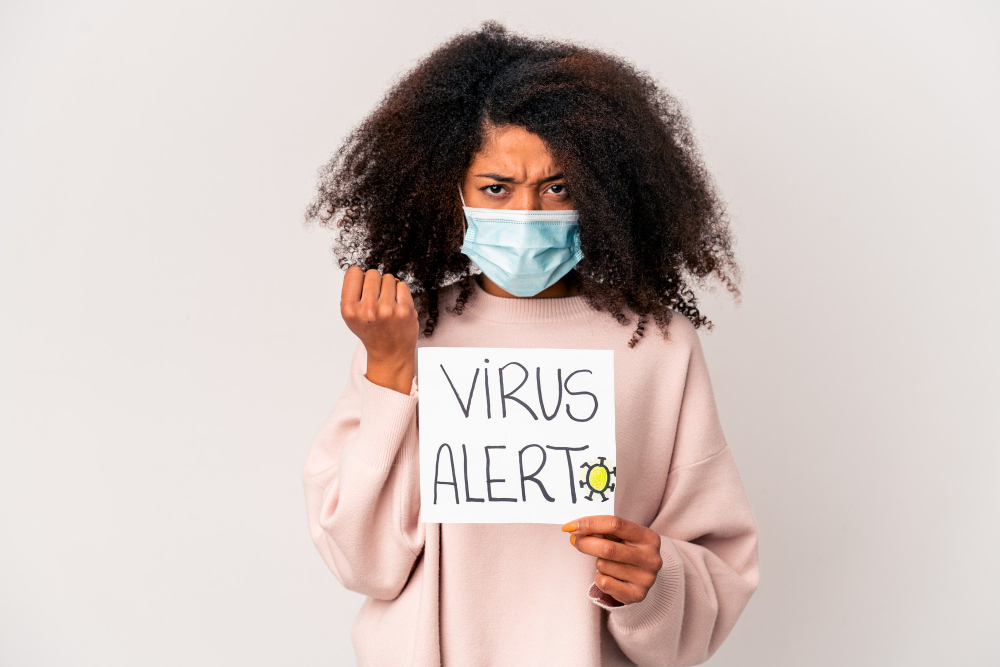Introduction to Viral Fevers
Viral fever is a common yet often misunderstood illness that affects millions of people worldwide. In this comprehensive guide, we will delve into the various aspects of viral fever, including its types, symptoms, causes, complications, treatment, and prevention.
By gaining a deeper understanding of this condition, you will be better equipped to recognize its signs, take appropriate measures for prevention, and seek timely medical intervention if needed.
Types of Viral Fever
Viral fevers can be caused by different types of viruses. Some common types of viral fever include influenza, dengue fever, Zika virus, and the common cold. Each type of viral fever has its own unique characteristics and may require specific treatment approaches. Understanding the specific type of viral fever you’re dealing with is essential for effective management.
Symptoms of Viral Fever
Recognizing the symptoms of viral fever is crucial for early diagnosis and prompt medical attention. The common symptoms of viral fever may include:
- High body temperature
- Fatigue and weakness
- Headache
- Muscle and joint pain
- Sore throat
- Runny nose
- Cough
- Nausea or vomiting
It’s important to note that these symptoms may vary depending on the specific virus causing the fever. Consulting a healthcare professional is recommended for an accurate diagnosis.
Causes of Viral Fever
Viral fevers are primarily caused by viral infections. These viruses can enter your body through various means, such as inhalation, ingestion, or direct contact with an infected person. Common sources of viral infections include contaminated food and water, respiratory droplets, and insect bites. Understanding the causes of viral fever can help you take preventive measures to reduce the risk of infection.
Complications of Viral Fever
While viral fevers are generally self-limiting and resolve on their own, certain complications can arise in some cases. These complications may include:
- Dehydration: High fever can lead to increased fluid loss, potentially resulting in dehydration. It’s essential to maintain adequate hydration during a viral fever.
- Secondary Infections: Weakened immune system during a viral fever can make you more susceptible to secondary bacterial infections, such as pneumonia or sinusitis.
- Organ Damage: Certain viral fevers, like dengue fever, can cause organ damage, particularly affecting the liver or circulatory system.
Timely medical intervention and appropriate management can help prevent or mitigate these complications.
Treatment of Viral Fever
Treating viral fever primarily involves alleviating the symptoms and supporting the body’s natural healing process. The focus is on rest, hydration, and over-the-counter medications to reduce fever and discomfort. It’s important to note that antibiotics are ineffective against viral infections and should only be used if a secondary bacterial infection is present. Always consult a healthcare professional for proper diagnosis and treatment guidance.
Prevention of Viral Fever
Preventing viral fever starts with adopting good hygiene practices and following certain preventive measures. Here are some key prevention strategies:
- Wash your hands regularly with soap and water, especially before meals and after using the restroom.
- Practice respiratory hygiene by covering your mouth and nose with a tissue or your elbow when coughing or sneezing.
- Avoid close contact with individuals showing symptoms of viral fever.
- Maintain a clean and hygienic environment, particularly in shared spaces.
- Stay up to date with vaccinations, as some viral infections have available vaccines for prevention.
By incorporating these preventive measures into your lifestyle, you can significantly reduce the risk of viral fever and its transmission.
Who is Prone to Viral Fevers?
Viral fevers can affect anyone, regardless of age or gender. However, certain factors can make individuals more prone to contracting viral infections. Understanding these risk factors can help you take additional precautions and seek early medical attention if needed.
- Weakened Immune System: People with weakened immune systems, such as those with underlying health conditions, the elderly, or individuals undergoing certain medical treatments, may be more susceptible to viral infections. A compromised immune system makes it harder for the body to fight off viruses effectively.
- Close Contact with Infected Individuals: Being in close proximity to someone infected with a viral fever increases the risk of transmission. This can happen in households, schools, workplaces, or crowded public spaces. Taking necessary precautions, such as practicing good hygiene and avoiding close contact with sick individuals, can help reduce the chances of contracting viral fevers.
- Lack of Vaccination: Certain viral infections have available vaccines that can provide protection against the associated diseases. Not being vaccinated or not keeping up with the recommended vaccination schedule can leave individuals vulnerable to viral infections. Stay updated with vaccinations, especially for diseases like influenza or measles, which can cause viral fevers.
- Traveling to High-Risk Areas: Traveling to regions or countries with a high prevalence of specific viral infections increases the risk of exposure. It’s important to be aware of the health risks associated with the destination and take appropriate preventive measures, such as getting vaccinated or taking antimalarial medications, if required.
- Poor Hygiene Practices: Maintaining good hygiene is crucial for preventing viral infections. Individuals who neglect handwashing, proper sanitation, and other hygiene practices are more likely to come into contact with viruses and subsequently develop viral fevers.
It’s important to note that while certain individuals may be more prone to viral fevers, anyone can contract these infections. Therefore, practicing preventive measures and maintaining overall good health and hygiene are essential for reducing the risk of viral infections.
Remember, if you or someone you know experiences persistent or severe symptoms of a viral fever, it is important to seek medical attention for proper diagnosis and treatment.
Conclusion
Viral fever is a common ailment that affects individuals of all ages. By understanding its types, symptoms, causes, complications, treatment, and prevention, you can navigate through this illness more effectively. Remember to consult a healthcare professional for a proper diagnosis and personalized advice. By staying informed and taking appropriate measures, you can protect yourself and others from viral fevers and promote overall well-being. Stay healthy, stay safe!
However, it’s important to remember that viral fevers can still occur even with the best preventive measures. If you do experience symptoms of a viral fever, such as high body temperature, fatigue, or respiratory symptoms, consult a healthcare professional for appropriate diagnosis and treatment guidance.
Other Healthcare Articles
The Ultimate Pregnancy Diet Chart: Nourishing You and Your Little Bundle!
Natural Remedies: The Secret to Effective Obesity Treatment
Unveiling Natural Solutions to Prevent Pregnancy After a Missed Period
Disclaimer: Medical Advice: The information provided in this blog post is for educational purposes only and should not be considered as a substitute for professional medical advice, diagnosis, or treatment. Always consult with a qualified healthcare professional for personalized guidance regarding your specific medical condition. Accuracy of Information: While we strive to provide accurate and up-to-date information, the field of medicine and viral fevers is constantly evolving. The content in this blog post may not reflect the most current research or medical guidelines. Therefore, it is advisable to cross-check any information provided with reliable sources or consult a healthcare professional. Individual Variations: Viral fevers and their management can vary from person to person. The symptoms, causes, treatment options, and preventive measures discussed in this blog post are general in nature and may not apply to everyone. It is important to remember that each individual's situation is unique, and personalized medical advice should be sought when making healthcare decisions. External Links: This blog post may contain links to external websites or resources for additional information. However, we do not endorse or have control over the content of these third-party websites. Accessing these links is done at your own risk, and we are not responsible for any consequences or damages that may arise from visiting these external sources. Results May Vary: The effectiveness of treatment options or preventive measures mentioned in this blog post may vary from person to person. What works for one individual may not work the same way for another. It is essential to consult with a healthcare professional for personalized advice tailored to your specific needs. Viral Fever Risks: While we provide information on preventing viral fevers, it is important to note that no preventive measure can guarantee complete protection. Viral infections can still occur despite following preventive strategies. Therefore, it is important to remain vigilant, practice good hygiene, and seek medical attention when necessary. Remember to always consult a qualified healthcare professional for personalized advice and to address any specific concerns or questions you may have regarding viral fevers or your health in general. By reading this blog post, you acknowledge and agree to the above disclaimers.



